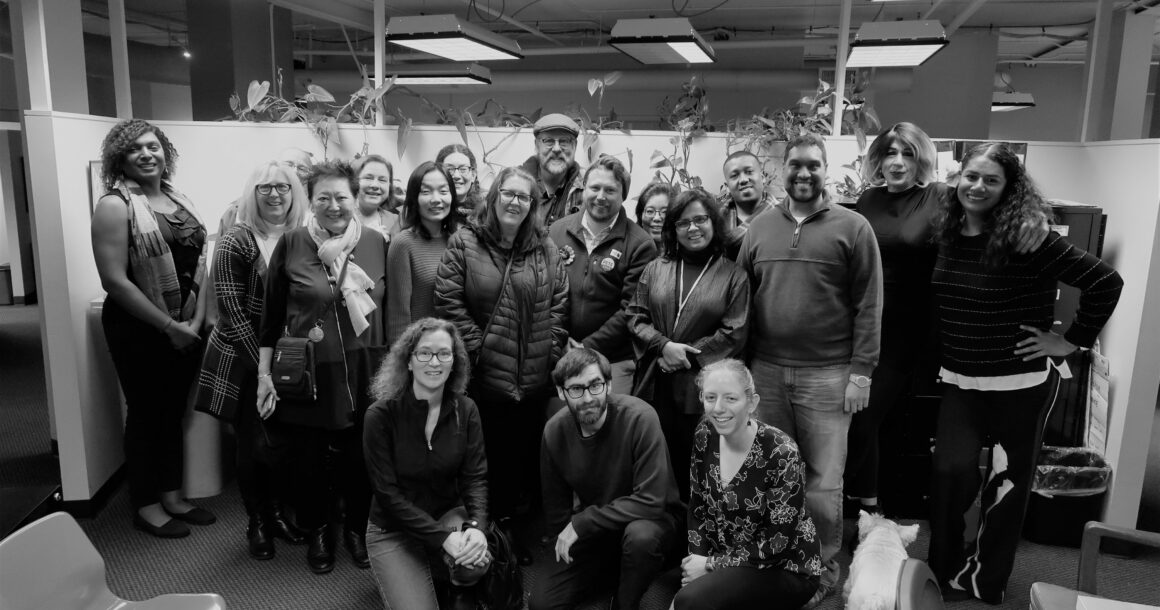RISE Immersion for Faculty and Staff Focuses on Trans Experience
Jun 23, 2020June 2019 marked the 50th anniversary of the riots against police brutality at New York’s Stonewall Inn, which is generally considered the birth of the modern LGBTQIA movement. Millions of people joined Pride marches around the world in 2019, and LGBTQIA rights were increasingly in the spotlight. “What many people forget is that many leaders…

June 2019 marked the 50th anniversary of the riots against police brutality at New York’s Stonewall Inn, which is generally considered the birth of the modern LGBTQIA movement. Millions of people joined Pride marches around the world in 2019, and LGBTQIA rights were increasingly in the spotlight.
“What many people forget is that many leaders in the movement were trans women of color,” said Sapan Parekh, Associate Director of the Bellevue College RISE Learning Institute. “So RISE decided it was important to commemorate and honor trans women of color, and the broader transgender community, in an immersion for faculty and staff to help our participants learn and create a more welcoming campus community for people who are often marginalized.”
Parekh and his colleagues at RISE saw an opportunity to broaden the campus’ ability to welcome and assist students, faculty, staff, and visitors who often face explicit transphobia, microaggressions, and institutional barriers to access. These challenges can make it difficult for the gender diverse members of the BC community to feel included and safe, openly be their authentic selves, and thus get the most of their education. RISE hoped to create an experience that would honor the 50th anniversary of Stonewall while also helping strengthen support given to BC’s gender diverse students and employees.
With co-sponsorship from the Office of Diversity, Equity, and Inclusion and the Robert Purser Art Gallery (Bellevue College Gallery Space), RISE offered the two-day immersion at the end of the Fall Quarter. A group of 15 faculty and staff participated, representing 14 college departments and offices, and they met with nonprofits, artists, and government agencies.
“All of us engage with gender diverse people on a daily basis, and sometimes people become nervous about how to engage without offending,” said Parekh. “People’s fear of doing something wrong leads them to just completely shut down. These conversations are incredibly important.”
The first day was spent learning some of the basics of gender and the challenges people face when changing gender. For example, what does the college do to help people be their authentic self? What economic barriers exist to those who are gender diverse?
“I began to realize that as much as I believe I support the LGBTQ community, there were things I had not even begun to touch the surface on in relation to understanding,” noted Christine Taylor, Associate Director of BC’s Financial Aid Office. “While I have been a supporter, I have never truly understood or truly imagined what it would be like to change places with someone for the day, and this experience made me step out of the box to do so.”
Navigating one marginalized identity is constant work, but what does it mean to have multiple marginalized identities? And how did our history of colonization force cultures to think of gender solely a binary?
Participants spent the second day diving into the intersectional identities many in the transgendered community must navigate. The group learned about being trans and disabled in college, trans youth incarceration, being trans in the military, and being a trans person of color.
“The thoughtfulness of the participants as they engaged our discussion of trans incarcerated students led me to believe that Bellevue College had staff and teachers that were caring and committed to making the world better for young folks,” said Terri Stewart, Director of the Youth Chaplaincy Coalition, a program of the Church Council of Greater Seattle.
Participants also learned more about the history behind traditional third genders recognized by pre-colonial cultures, such as “Two-Spirit,” a Native American term for people with both female and male energies. “Fa’afafine” is a Polynesian term for people who identify as having a third gender and is a recognized gender identity in traditional Samoan society for some who are assigned male at birth and embody both masculine and feminine gender traits.
“This program was an eye-opener for me,” said Nora Lance, Associate Director of Student Programs. “I learned so much, and this experience gave me ideas on how I can bring what I learned to the college. I am already talking to some of our program coordinators to bring some of the presenters to our college.”
In all, immersion participants met with some 12 experts, organizations and businesses, including: TRANSform Washington & the Pride Foundation, the Lavender Rights Project, the Greater Seattle Business Association, J Mase III, Calvin Gimpelevich, the Seattle Indian Health Board, the Minority Veterans of America, UTOPIA, Colin Jon d. Stewart, the Church Council of Greater Seattle, Echo Glen Children’s Center, and TRACTION, with initial input from Gender Diversity.
The Pride Foundation, the Seattle Indian Health Board, Echo Glen Children’s Center, and Seattle Central College’s International Programs all offered the spaces necessary to hold these various experiences.
“This immersion experience was an amazing, interpersonal journey with my colleagues from other disciplines and departments into the complex world of identity and gender,” said world languages instructor Rick Mangan. “This kind of professional development experience is exactly what this community needs right now: Openness, authenticity, respect, humility, and love.”
